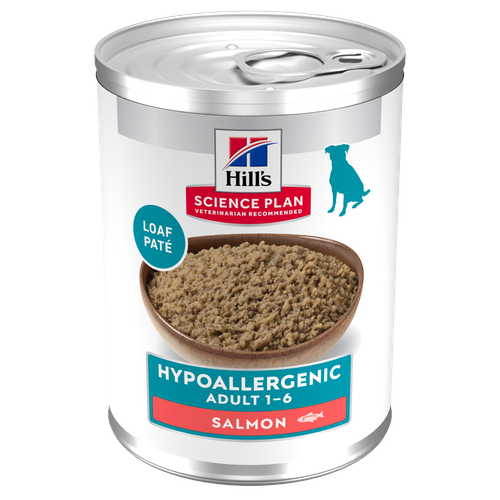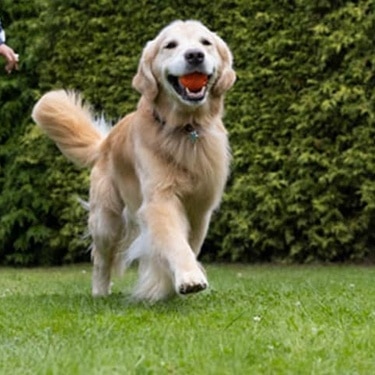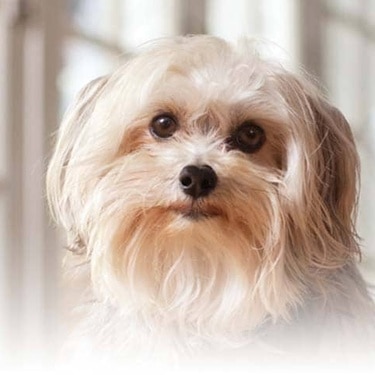
-
Find the right food for your petTake this quiz to see which food may be the best for your furry friend.Find the right food for your petTake this quiz to see which food may be the best for your furry friend.Featured products
 Puppy Food
Puppy FoodHill's Science Plan Puppy Multipack Wet Dog Food with Chicken & Beef are complete premium pet foods for growing puppies from weaning until 1 year old and for pregnant and nursing dogs. Your puppy will love these deliciously smooth and savoury minced loaves, formulated for balanced nutrition and overall health.
Shop Now Adult Wet Dog Food with Beef
Adult Wet Dog Food with BeefHill's Science Plan Adult Multipack Wet Dog Food with Chicken, Beef & Turkey are complete premium pet foods for adult dogs from 1 year. Your dog will love these deliciously smooth and savoury minced loaves, formulated for balanced nutrition and overall health.
Shop Now Mature Adult Dog Food
Mature Adult Dog FoodHill's Science Plan Mature Adult Multipack Wet Dog Food with Chicken & Beef are complete premium pet foods for mature adult dogs from 7 years. Your dog will love these deliciously smooth and savoury minced loaves, formulated to deliver the appropriate amount of energy to support the needs of adult dogs.
Shop NowFeatured products Mature Adult Wet Cat Food with Chicken
Mature Adult Wet Cat Food with Chicken
Tender chicken chunks in gravy for mature adult cats. Made with easy-to-digest ingredients, high-quality protein for lean muscle maintenance and antioxidant vitamins C+E for optimal health.
Shop Now Light Adult Multipack Wet Cat Food with Chicken & Ocean Fish
Light Adult Multipack Wet Cat Food with Chicken & Ocean FishTender chicken chunks in gravy for cats, with L-carnitine and fewer calories for ideal weight management. Packed with high-quality protein, omega-6s, and vitamin E for shiny fur and healthy skin.
Shop Now Adult Multipack Wet Cat Food with Beef, Ocean Fish & Chicken
Adult Multipack Wet Cat Food with Beef, Ocean Fish & ChickenTender chunks in gravy for cats, with high-quality protein to maintain lean muscle. With vitamin E and omega-3s & -6s for healthy skin and balanced minerals to support healthy vital organs.
Shop Now -
Dog
- Dog Tips & Articles
-
Health Category
- Weight
- Food & Environmental Sensitivities
- Urinary
- Digestive
- Joint
- Kidney
-
Life Stage
- Puppy Nutrition
- Adult Nutrition
- Senior Nutrition
Cat- Cat Tips & Articles
-
Health Category
- Weight
- Skin & Food Sensitivities
- Urinary
- Digestive
- Kidney
-
Life Stage
- Kitten Nutrition
- Adult Nutrition
Featured articles The Incredible Science Behind Your Pet's Microbiome
The Incredible Science Behind Your Pet's MicrobiomeLearn what your pet's microbiome is, how it contributes to your pet's gut and overall health, and why nutrition is important in maintaining healthy microbiomes.
Read More Show some love with wet foods: a great choice for pets with health issues
Show some love with wet foods: a great choice for pets with health issuesShow some love with wet foods: a great choice for pets with health issues.
Read More The Right Diet For Your Pet
The Right Diet For Your PetIn people, the right diet is very important. If you are eating the wrong way for your metabolism, activity level, age and lifestyle you could end up with health issues.
Read More -


In recent years we’ve seen a growing trend for owners to switch their dogs to a grain-free diet. The internet is awash with conflicting information of varying quality which can make it very difficult for us as owners to know what is the best thing to do for our pets. I’d like to take the time to have a look at why people feel they want to change to grain-free and whether it’s actually a good idea.
Why do owners want a grain-free food for their dog?
One of the underlying reasons that pet owners are interested in grain-free food is that they see dogs like their wolfy-ancestors and truly believe that we should feed them as such. There are many problems with this assumption. You will often hear that dogs are carnivores therefore they should only eat meat. This is incorrect. Dogs are classed as carnivores anatomically but they are dietary omnivores like bears and are perfectly capable of eating both plants and meat. Let’s not forget that the beautiful, iconic giant panda is classed as a carnivore that is 100% vegetarian in eating habits!
Dogs evolved alongside us over 20-40,000 years. In this time they started to eat our scraps and leftovers and we know from genetic research that dogs are over 99% able to digest carbohydrates such as grains. There are literally millions of stray dogs round the world surviving on scraps and very little meat. Wolves do not have the same genetic makeup.
Another crucial difference is volume of food and calorie needs. Wolves need about 3-4 times the calories of an average sized dog so they eat very large volumes of food. This ensures adequate levels of vitamins and minerals. If we fed dogs in this way they would either be morbidly obese or drastically deficient in certain nutrients.
Many owners have also heard scary sounding things about grains like that they are simply used as cheap fillers. Do we see cereals and wholegrains that we encourage ourselves and our children to eat in this way? The fact is that for dogs and humans alike, grains are a great source of vitamins and fibre. They also supply what we call prebiotic fibre. This is the type of fibre that feeds your ‘healthy’ gut bacteria which in turn keep your gut cells healthy and active.


Tasty Tips
What about grain allergy?
One reason that some owners want a grain-free food is because they are worried about allergies. True food allergies are rare in dogs and allergies to proteins in plants are not very common. A small number of dogs are allergic to certain foods, however, and the most common ones in dogs are beef, chicken, dairy and wheat.
Gluten Sensitivity
Some owners worry about gluten in pet foods. Gluten sensitivity is incredibly rare in dogs and has only been found in a small number of Irish Setters as an inherited disease.
So is grain-free necessarily bad?
As with all food and dietary decisions this depends on the diet you use. Dogs can certainly do well on a grain-free diet but it is essential that it is balanced and complete. This means that it still meets all their dietary needs in the right proportions. Some owners have heard about a certain heart disease (called dilated cardiomyopathy or DCM for short) being caused by grain-free foods. At the time of writing this is not proven and you can read more from the PFMA (Pet Food Manufacturers’ Association) about the ongoing research.
In summary…
The most important thing when it comes to feeding dogs is that they have a balanced and complete pet food that is suitable for their lifestage. Simply removing one ingredient or trying to balance meals at home is fraught with danger and can lead to severe nutritional excesses as well as deficiencies. Dogs are perfectly adapted to a diet with meat and plants and are entirely capable of digesting carbohydrates.
Many veterinarians and pet owners have healthy and happy dogs eating foods with grains. Unless there is a medical reason, high quality complete and balanced pet foods with grains are fine for dogs. Grains are a good source of nutrients and help make a balanced diet. If you feel you really do want a grain-free pet food, talk to your vet about the most reputable ones to choose from and always make the change slowly over a number of days to avoid digestive upsets.


One of our staff authors prepared this article for you
Related products

Hill's Science Plan Hypoallergenic Adult Wet Dog Food with Salmon is a complete premium pet food for all adult dogs from 1 year. This savoury tinned loaf is specially formulated for dogs with delicate skin and stomachs. It features a single novel animal protein source and is grain-free.

Hill's Science Plan Adult Multipack Wet Dog Food with Chicken, Beef & Turkey are complete premium pet foods for adult dogs from 1 year. Your dog will love these deliciously smooth and savoury minced loaves, formulated for balanced nutrition and overall health.

Hill's Science Plan Puppy Multipack Wet Dog Food with Chicken & Beef are complete premium pet foods for growing puppies from weaning until 1 year old and for pregnant and nursing dogs. Your puppy will love these deliciously smooth and savoury minced loaves, formulated for balanced nutrition and overall health.

Hill's Science Plan Mature Adult Multipack Wet Dog Food with Chicken & Beef are complete premium pet foods for mature adult dogs from 7 years. Your dog will love these deliciously smooth and savoury minced loaves, formulated to deliver the appropriate amount of energy to support the needs of adult dogs.
Related articles

Wondering why your dog is constantly itching? Read on to discover common causes, such as allergies or parasites, and find out how you can help your dog.

Discover the causes, signs, and treatments of kidney disease in dogs and find methods of supporting your dog's kidney health. Learn more at Hill's Pet UK.

Just like every other pet owner, vets are responsible for giving their pets the best possible nutrition, exercise and care needed to keep them healthy and happy.

Dog obesity is a significant problem - learn more about helping your dog become trimmer and healthier through improved nutrition.

Put your dog on a diet without them knowing
Our low calorie formula helps you control your dog's weight. It's packed with high-quality protein for building lean muscles, and made with purposeful ingredients for a flavourful, nutritious meal. Clinically proven antioxidants, Vitamin C+E, help promote a healthy immune system.
Put your dog on a diet without them knowing
Our low calorie formula helps you control your dog's weight. It's packed with high-quality protein for building lean muscles, and made with purposeful ingredients for a flavourful, nutritious meal. Clinically proven antioxidants, Vitamin C+E, help promote a healthy immune system.

